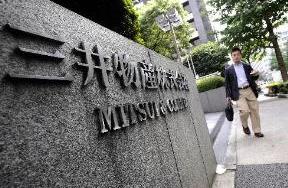Asahi Shimbun | 2010/09/27
BY YU MIYAJI AND MITSUKO NAGASAWA
THE ASAHI SHIMBUN GLOBE Major Japanese trading firms are cautious about Japan buying agricultural land overseas, growing food there and then importing it. One reason, it seems, is their past failures in the agriculture business. In the 1970s, three major trading companies invested in Indonesian farmland and began growing corn. After continuing for about 10 years, all three withdrew after failing to realize the profits they had expected. The failure was a combination of adverse circumstances, including problems with farmers and plant disease epidemics. Japanese trading companies turned entirely to the business of buying up crops and bringing the harvest to Japan. Although Mitsui & Co. has been operating a joint investment in Brazil to grow soybeans and corn there since 2007, there are few examples of companies securing land and producing like this. Under the circumstances, even if the government wanted to turn to wide food production overseas, it would find it difficult to implement such projects. That is the general view in the industry. Meanwhile, there are signs that China has a national policy of advancing into Africa and that South Korean government policy is backing aggressive private investments overseas. Tokyo is now looking for ways to suppress this overheated competition for land. Japan's proposal was included in the Heads of Government Declaration at last year's G-8 Summit in L'Aquila, Italy. Rather than leaving unbridled land competition unchecked, it supported promotion of Responsible Agricultural Investment (RAI), representing a call for international rule-making. The seven principles of RAI recognize that in order to solve food problems it is necessary to promote investment in agriculture. However, it is emphasized that investment must be carried out within a proper legal and regulatory environment and respect existing rights to land and associated natural resources. The Foreign Ministry hopes that "as a result of Japan's proposal, a brake will be applied to the type of land acquisitions where the buyer waves a bundle of cash in the face of the other party." After the L'Aquila summit, discussions between administrators were held. It appears that the debate about RAI is making progress. Tokyo hopes to obtain an international agreement at the Asia-Pacific Economic Cooperation (APEC) meeting it will host in November. It will not, however, be easy for the international community to find a common agenda. There is resistance from countries that are actively investing. They say, "There is no reason why agricultural investment should be regulated, since it also contributes to development of the other country." Furthermore, developing countries won't welcome rules that could reduce investment momentum. Ashok Gulati, director in Asia of the International Food Policy Research Institute, points out that while he respects Japan's attempt to create an international framework in itself, if a country like Japan takes the lead in international rule-making, it might be seen as "defending your own country's interests." Japan has a low food self-sufficiency rate, so it depends on imports for most of its agricultural products. But Japan's domestic situation is complex. The stance of the Agriculture, Forestry and Fisheries' Ministry is to defend Japan's farmers. This makes it difficult to give unconditional support for RAI, which presupposes investment in overseas agriculture. The reality is that the government's position is not necessarily settled yet.












